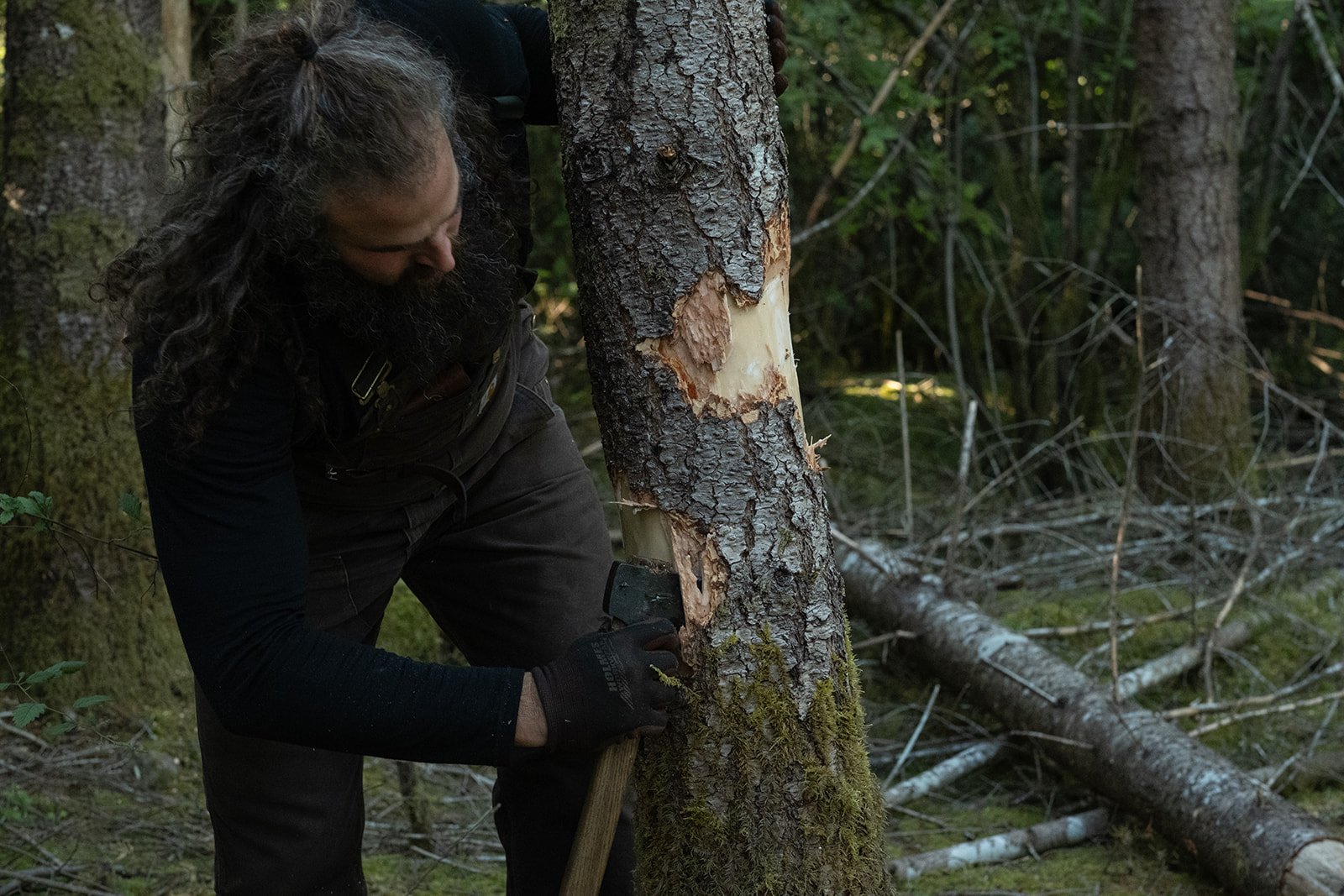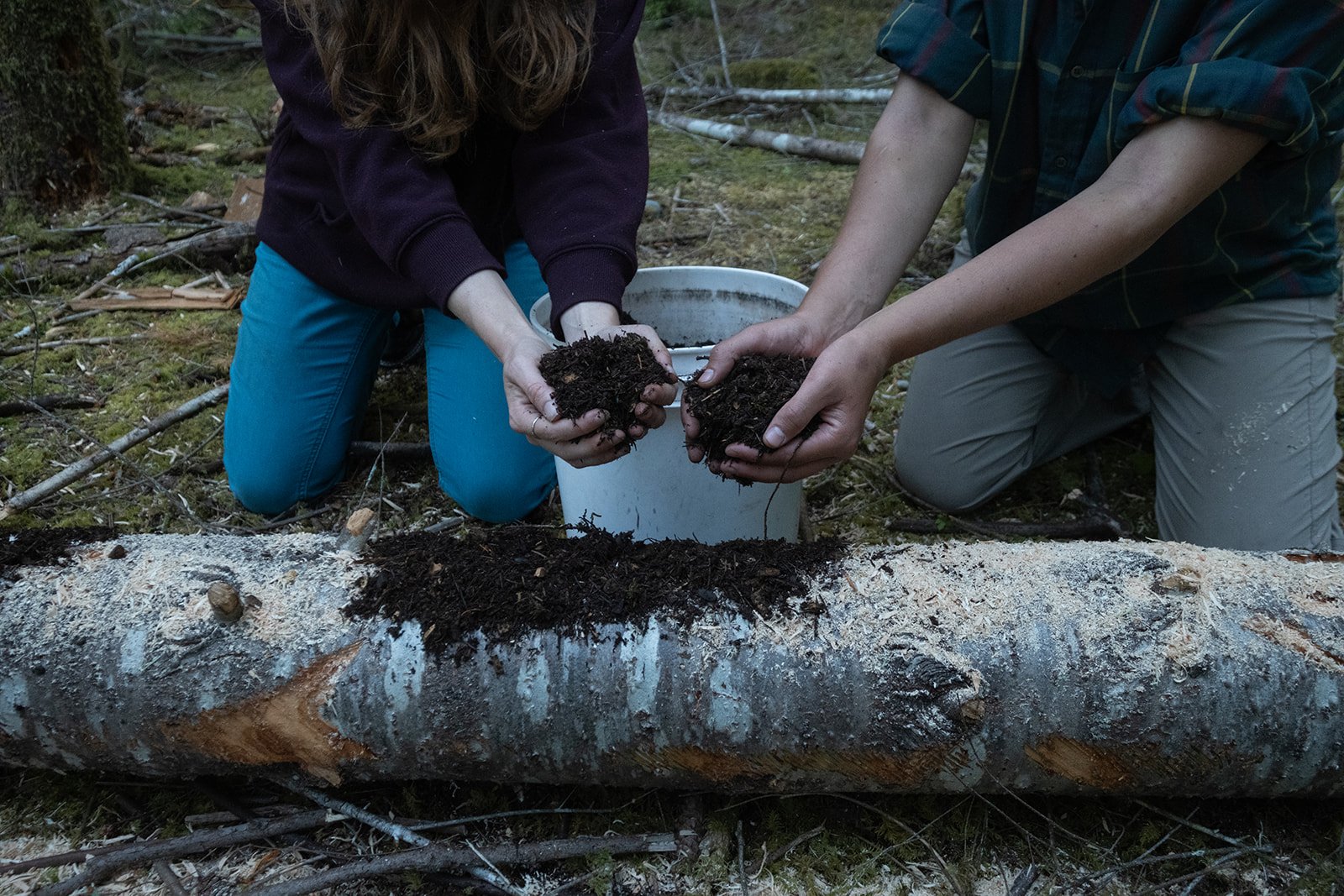


About WolfTree
WolfTree was founded by Tal Engel to develop and implement forest rehabilitation models and services that can be utilized on a landscape scale to address the dire challenges our ecosystems and societies face: from fires, floods, and droughts, to biodiversity collapse and hydrological dysfunction. It also strives to foster ecological, scientific, and cultural environments that facilitate the regeneration of additional old growth forests, in time. The WolfTree approach to forest rehabilitation rests on a firm foundation of decades of scientific research conducted across the Pacific Northwest into old-growth and disturbance ecology, and into conventional ecological forestry models.
WolfTree has arisen out of a grave concern for the fate of our planet’s ecosystems, and an understanding that the hour grows late, very late; that if we, as a species, fail to find ways to live with nature rather than against it, the consequences, although already dire, will be unfathomable. As the skies darken, and a growing sense of despair, grief, and guilt plagues those who love this Earth, we believe that not only is it important to fight against the dying of the light—but that it is an absolute necessity for the well-being of both individuals and communities. Life devoid of hope is a wretched affair—so even if you won’t save the world, you might just save your soul. Dozens of interns and volunteers who dedicate themselves to the arduous tasks of rehabilitating forests and stewarding land with us each year, can attest to that.
About Tal
Tal is a regenerative farmer and forest rehabilitation practitioner who lives in the Comox Valley, British Columbia, together with his family on their land, Honey Grove. There, supported by his family and a group of dedicated friends, interns and volunteers, Tal conducts his forest rehabilitation experiments, researches and studies ecology, and stewards an orchard of a thousand apple trees, while his partner stewards Honey Grove’s bee colonies, its market garden, and ecotourism venues. His goal is to develop ways to dissolve the arbitrary boundaries between nature and farm through his “Ecological Farming” model. Tal dreams that one day the unbreakable link between the health and wellbeing of farms and the ecosystems that surround them will be recognized.
Alongside his life as a farmer, Tal’s greatest passion are the forests that he is surrounded by. His days are spent striving to decipher the infinite complexities of forest ecology through a mix of a deeply intimate relationship with nature and extensive academic research, and in advancing the art and science of forest rehabilitation through the development of novel methodologies and approaches. In the Fall of 2024 Tal will be beginning an MSc degree will be dedicated to a thesis examining how successional dynamics and industrial management regimes in forest ecosystems affect their resilience and health, and therefore their potential to survive and attain old-growth status.
Tal collaborates with and has had his work featured by prominent environmental organizations such as Raincoast Conservation Foundation, the Canadian Society of Environmental Biologists, the Comox Valley Land Trust, the Denman Conservancy Association, Transition Salt Spring, and others.


